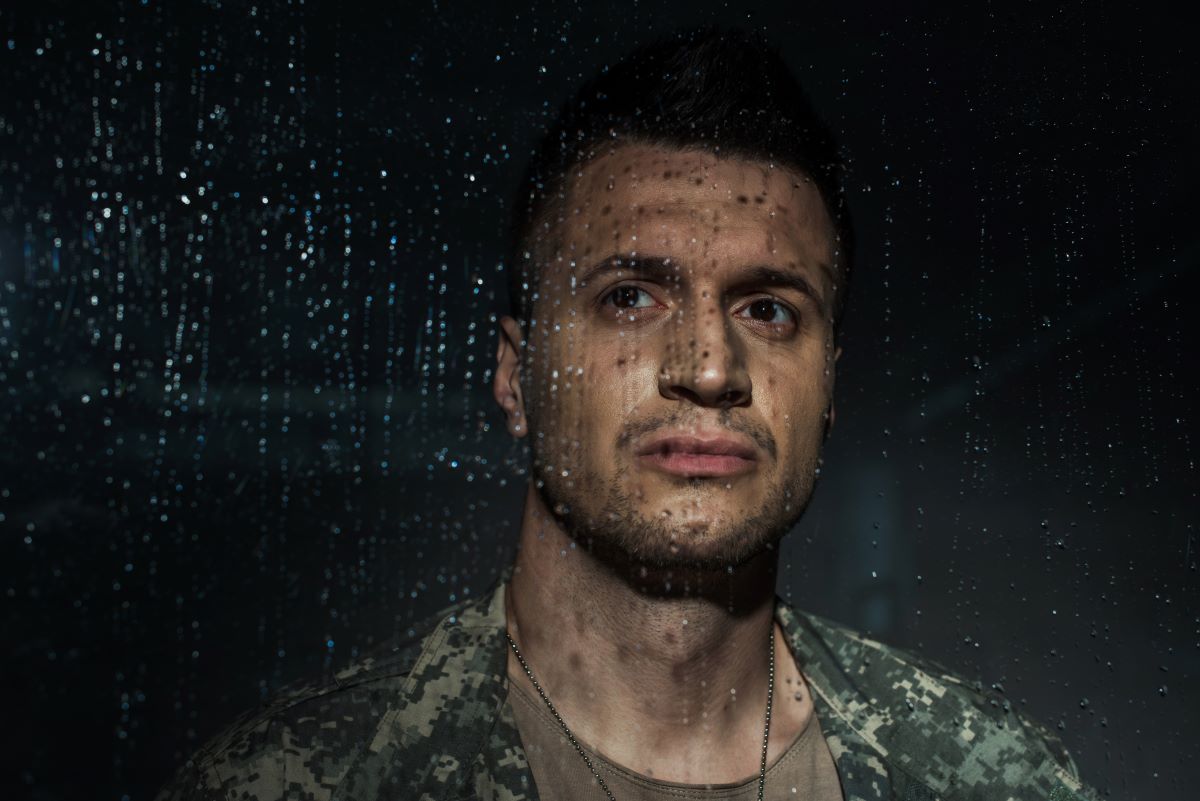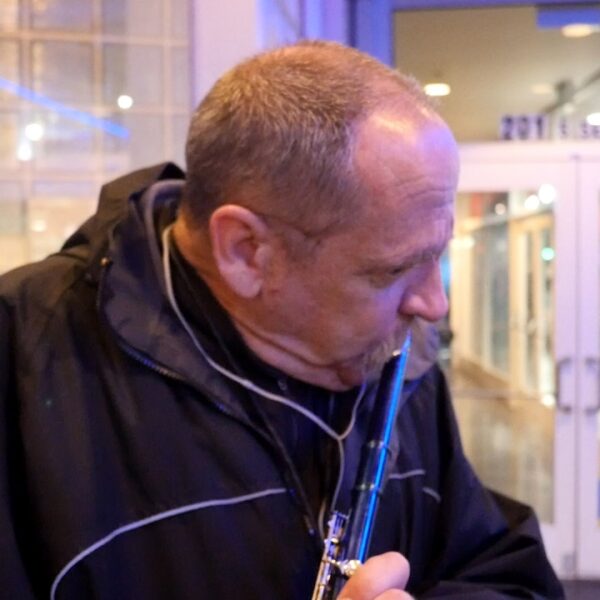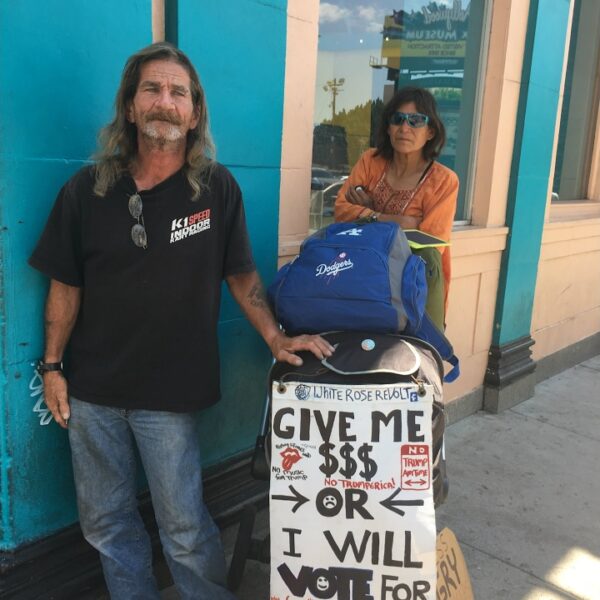When you picture a US soldier marching through a fire, you’re probably picturing a battlefield. What if we told you this is what homeless veterans go through when they return home?
Homelessness is hard enough on its own, a condition so distressing it shaves years off the lives of its survivors. Even without any additional trauma, this state of living is unfathomably brutal. Sadly though, since life does not exist in a vacuum, people enduring the horrors of homelessness are forced to face many other disasters simultaneously and in addition to the initial hardship.
If you think being sick is bad, imagine how much worse it is to be sick while homeless. If you think losing a loved one is hard, imagine how much harder it would be to return from a loved one’s funeral to a long line at an emergency warming shelter. Likewise, if you think war is a nightmarish scenario, imagine what it’s like to wake up from that nightmare on a cold, narrow street corner where the rain just keeps coming down.
Homeless Veterans Are More Likely to Be Unsheltered than Other Houseless Individuals and Families
Of all the people forced to experience homelessness in the United States, it is, ironically, the former soldiers who are most likely to do so on the actual city streets. Other subpopulations within the homeless community are doubled up on sofa beds or spending their time bouncing back and forth between warming centers and homeless shelters, motel rooms, hotel rooms, and rooming houses.
According to the most recent data, nearly half of all homeless veterans were sleeping rough in 2022. That means they were living outside in spaces unfit for human habitation. This starkly contrasts the overall homeless population, which exhibits unsheltered homelessness at rates of about 33%.
Living unsheltered is arguably the most perilous of all types of homelessness. It puts our veterans at an increased risk for things like violent attacks and robberies, not to mention criminalization, which results in fines, citations, and imprisonment.
If you think it’s discouraging when your boss or coworkers don’t value your hard work, imagine what it feels like to be treated this way after your job was literally risking life and limb for the people living in this society. Then, when you return home, you are arrested, assaulted, and harmed instead of being celebrated. Then there’s that rain and heavy wind, knocking your tent over again, a painful reminder you’ve got no place else to go.
Because Homeless Veterans are More Likely to be Unsheltered, They Have a Heightened Risk of Exposure to Inclement Weather
Because homeless veterans are more likely to be unsheltered, they are at a higher risk of exposure to inclement weather. While a little rain might not inconvenience a housed person, the same cannot be said for an unsheltered homeless person whose belongings are stored outside.
Losing everything is a common problem for unsheltered homeless veterans. They tend to lose their possessions whenever they are forced to relocate from one encampment to another or from a street corner to a flammable pallet shed (loosely referred to as a “shelter”). Another common condition that gives way to loss is severe weather.
It’s easy to see how a tumultuous storm could be the difference between taking a dose of life-saving medication and losing those pills upstream.
A California wildfire flame could quickly sweep over someone’s paper documentation, thus extinguishing all evidence of their identity. Losing documentation can mean losing disability benefits, healthcare, and access to financial assistance. Yet, as we speak, the gusts are growing ever stronger, foreshadowing the gray skies of a perfect storm.
Climate Change is Intensifying the Weather, Placing Homeless Veterans at Even Higher Risks
As time wears on, this predicament is only further exacerbated by climate change, which has, in recent years, caused storms to become increasingly more turbulent.
According to the American Meteorological Society, which recently released an in-depth analysis of how storms are behaving now that planet Earth is just 2 degrees Fahrenheit hotter, climate change has fueled thermometer-busting heatwaves across California and Nevada, two states with high numbers of unsheltered homeless veterans.
Although this was long suspected, scientists are now certain that greenhouse gas emissions are causing bipolar extremes, simultaneously creating vicious floods and destructive wildfires and stirring up heat waves and hurricanes. And then, of course, there is the rain. For unsheltered US veterans, it is relentless, and scientists predict it will only get heavier in the future.
Isn’t It About Time to Bring Our Homeless Neighbors in from the Storm? Please Urge Your Local Representatives to Rethink Their Legislative Choices.
This will undoubtedly become a bigger issue unless we work toward ending veteran homelessness.
There is no reason that anyone should have to sleep outside in a downpour or try to survive a Category 4 hurricane armed with nothing but a flimsy tent.
Thus far, we have shunned our nation’s former soldiers and left them in the streets to die right on the land they believed they fought to protect.
We have tried ignoring them, but their flag-laden roadside tents are a harrowing reminder. We’ve tried vilifying them, but the data doesn’t line up with the negative stereotyping. We’ve tried “temporarily housing” them in government-sanctioned pallet shelters only to watch those poorly constructed contraptions go up in flames.
Let’s, instead, try providing them with permanent supportive housing and wraparound services that suit their needs.
To do this, we need to rethink the harmful legislation that is currently on the books, the kinds of laws that criminalize unsheltered former soldiers and leave them out to dry amid the storm. Please tell your local representatives to prioritize Housing First approaches to veteran homelessness and all other forms of homelessness nationwide.













